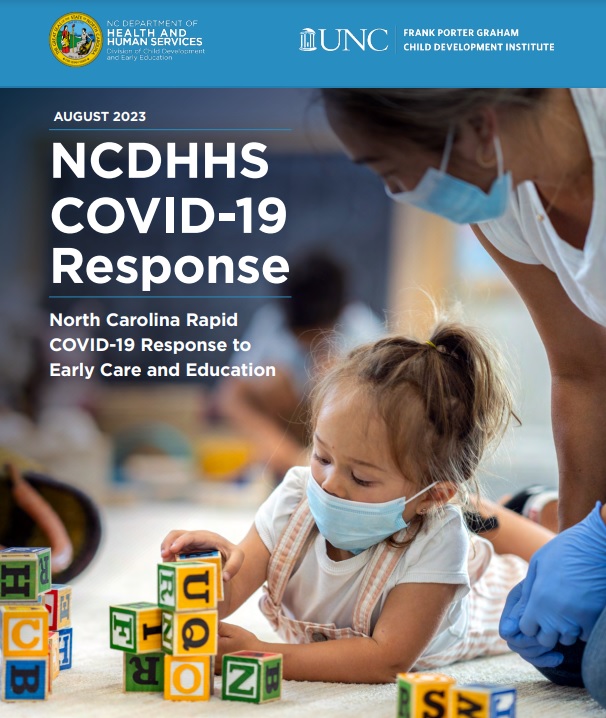Special to Iredell Free News
RALEIGH — A new report showcases how North Carolina supported and invested in its child care programs so they could remain open during the COVID-19 pandemic, preserving the state’s early childhood education infrastructure and setting it apart from other states.
North Carolina moved fast and was one of the first states to get federal funds to child care programs. Its approach focused on prioritizing the workforce, offsetting increasing operational costs, supporting all licensed child care programs and recognizing rural costs.
“NCDHHS COVID-19 Response: North Carolina Rapid COVID Response to Early Care and Education,” by the Frank Porter Graham Child Development Institute, shares how the N.C. Department of Health and Human Services launched a complex and evolving pandemic response.
The state’s efforts produced results. North Carolina’s approach to using one-time federal stabilization funding allowed its child care system to fare better than most states. While the nation lost on average 8 percent of its child care workforce, North Carolina is down less than 1 percent.
“North Carolina relies on early childhood teachers and programs to support children’s healthy development and learning and to keep our economy running,” said Gov. Roy Cooper. “We need to continue to invest in them so families can find quality child care and businesses can hire the workforce they need.”
Many child care programs report that without continued stabilization funding they will close programs, reduce the number of children served and/or increase parent fees. With federal funding to stabilize the child care industry ending this year, continued funding is needed.
“The experiences shared in the report will inform our collective work to stabilize the child care industry and ensure it is there to support children’s healthy development, allow parents to work and keep businesses running,” said NCDHHS Secretary Kody H. Kinsley.
The report outlines:
♦ The challenges the COVID-19 pandemic raised for young children and the early childhood educators who cared for them;
♦ Impacts on employment for parents of young children;
♦ The coordinated response to the state’s early childhood challenges;
♦ The breadth and depth of guidance and resources to support child and workforce health and safety; and
♦ The resiliency of the early childhood education system and lessons learned
LEARN MORE
To learn more, visit RaiseNC.nc.gov, and download the report HERE.




